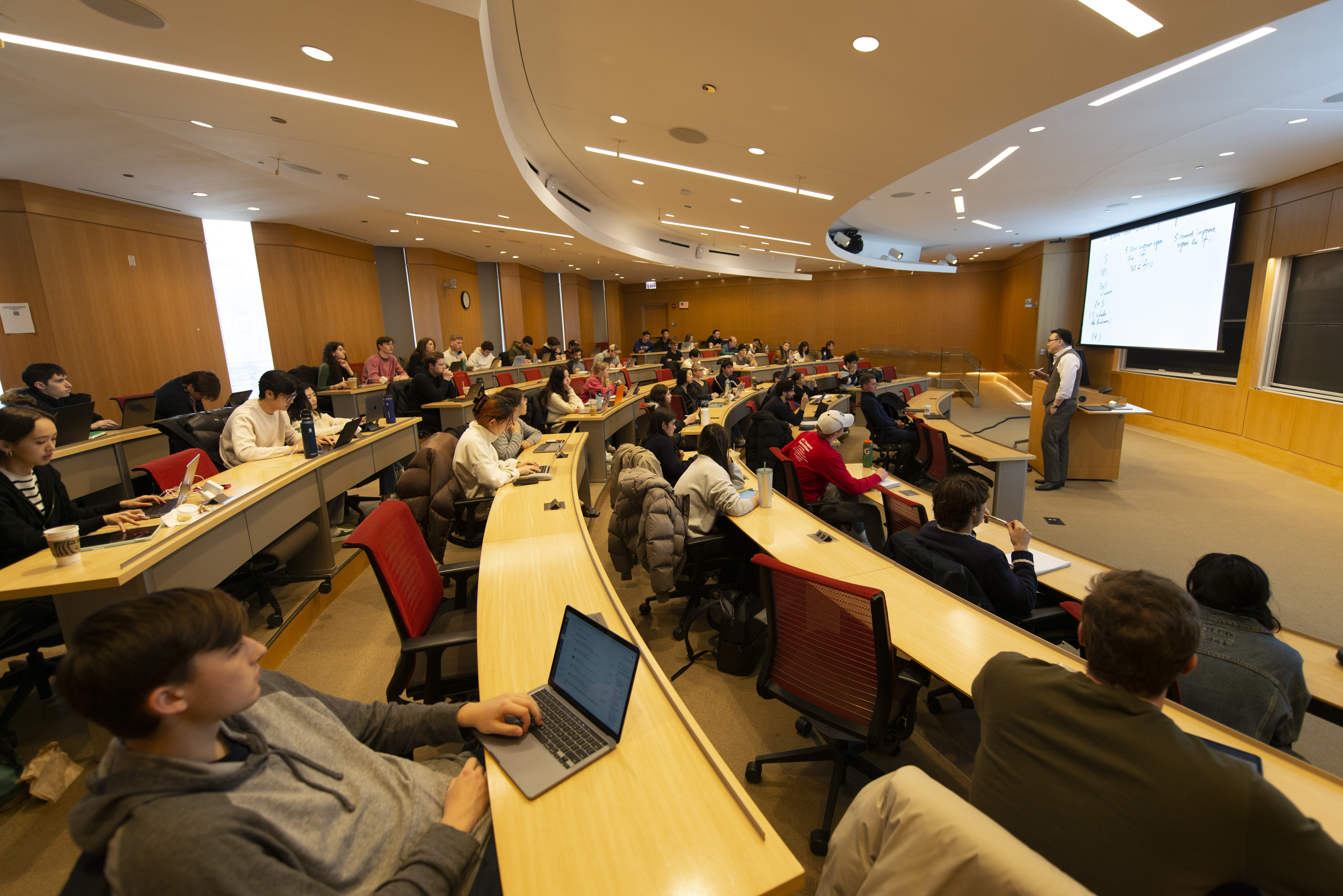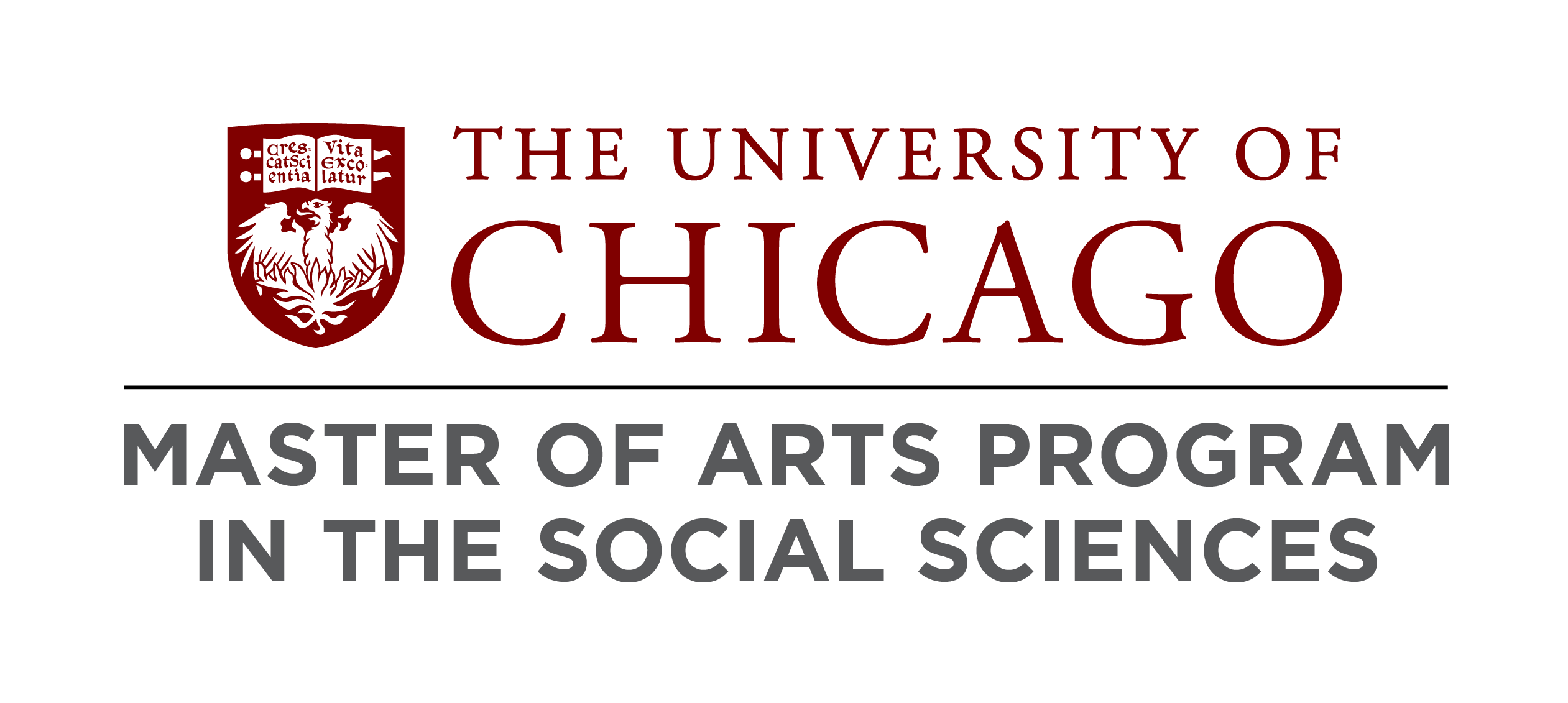Graduate Certificates

Whether focusing on a specific social science discipline or pursuing interdisciplinary interests, MAPSS students can also receive a graduate certificate in one of the areas outlined below. Including a certificate in your UChicago graduate experience further distinguishes your accomplishments as you consider future doctoral programs and career aspirations.
Computational Social Science
The Computational Social Science Certificate provides an innovative, cutting-edge approach to computational skills valuable to students looking to deepen their research skills or develop a competitive portfolio for industry positions. The certificate is designed to complement the student’s training at the University of Chicago, allowing them to broaden their methodological expertise and apply this across a range of social scientific domains. Learn more about the Certificate.
Education and Society
MAPSS students pursuing the Education and Society (EDSO) certificate specialize in one of three areas. “Individual Development and Learning” explores how students learn, which pedagogies are most effective, and how schools are best organized. “Schooling and Society” examines how schools are shaped by cultural, familial, and neighborhood contexts, what role schools play in their wider communities, and what impact schools have on social inequality. “Educational Policy and Evaluation” investigates what principles of research design, statistical analysis, and program evaluation are most effective for assessing educational interventions, and what the best evidence implies for core policies like how to improve reading instruction, whether charter schools are more effective than public schools, or how to attract and retain talented teachers in under-resourced institutions.
Each of these topical areas requires an interdisciplinary lens. For example, psychologists are interested in the cognitive and affective dimensions of learning, economists study the development of human capital, and sociologists explore the role of schooling in processes of social stratification. Consequently, a psychologist might see how children become better learners, an economist might think about how incentives shape teacher and student effort, and a sociologist would see how a school’s organization shapes social networks and opportunities.
Students earning the Education and Society Certificate complete courses that combine these interdisciplinary perspectives in a coherent program of study. In addition, students can seek research placements in one of several education-related laboratories, research projects, or organizations at the University, including the Urban Education Institute; the UChicago Consortium on School Research; UChicago STEM Education; the UChicago Science of Learning Center; the Urban Labs; the TMW Center for Early Learning and Public Health; educational programs within the Office of Civic Engagement; or any number of ongoing faculty-led projects.
Learn more about the Education and Society Graduate Certificate.
Gender and Sexuality Studies
A Graduate Certificate from the Center for the Study of Gender and Sexuality A Graduate Certificate from the allows MAPSS students to deepen their academic interest in gender and/or sexuality. The interdisciplinary nature of the subject can lead to academic exploration above and beyond the specific course of study undertaken. Students can select relevant courses across departments and divisions and work with a range of scholars affiliated with the Center to expand their knowledge of gender and sexuality. MAPSS students pursuing the Graduate Certificate in Gender and Sexuality Studies are active participants in the life of the Center, participating in the Gender and Sexualities Studies Workshop, Gender and Sexuality Studies Working Group meetings, talks, seminars, and conferences.
Learn more about the Graduate Certificate in Gender and Sexuality Studies.
Latin American and Caribbean Studies
MAPSS students completing the Graduate Certificate in Latin American and Caribbean Studies (LACS) make the most of the rich curriculum offered through the Center for Latin American Studies (CLAS). These students forge close ties with faculty, participate in the Center’s many conferences and events, and plan their thesis research in Latin America or the Caribbean. The individualized training students gain through completing the LACS Graduate Certificate gives them a strong, balanced foundation in Latin America and the Caribbean that will enhance their work in everything from public policy to NGOs to education, business, research, or the arts.
To complete the Graduate Certificate in Latin American and Caribbean Studies, MAPSS students must enroll in a foundational course and take three additional electives in Latin American Studies; demonstrate language proficiency in a regional language (most often in Spanish or Portuguese); write an MA thesis on a theme or topic related to Latin America, advised by a faculty member affiliated with CLAS, or approved for that purpose by CLAS; and present their research in one of the Latin America-focused workshops.
Learn more about the Graduate Certificate in Latin American and Caribbean Studies.
Race, Diaspora, and Indigeneity
The Graduate Certificate in Race, Diaspora and Indigeneity offers MAPSS students an opportunity to receive training in the concepts and categories that orient the study of race, diaspora, and Indigeneity. These three foundational concepts have shaped the modern world and continue to reverberate in contemporary thought, action, culture, and policy. Given the interdisciplinary and transnational approaches needed to study race, diaspora, and Indigeneity rigorously, the certificate program allows students to examine these concepts beyond the specific course of study undertaken in MAPSS.
Learn more about the Graduate Certificate in Race, Diaspora, and Indigeneity.
 THE UNIVERSITY OF CHICAGO
THE UNIVERSITY OF CHICAGO

